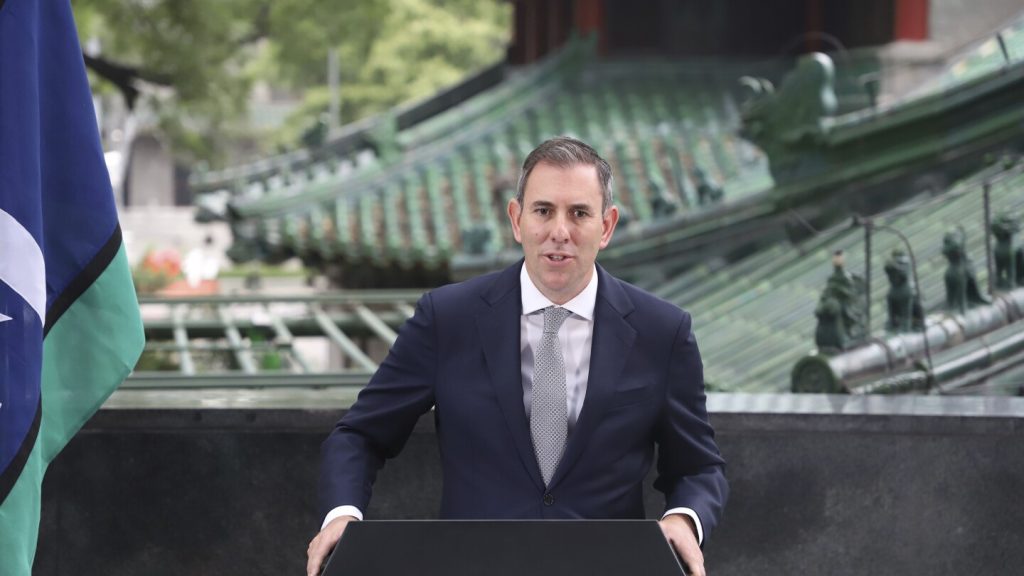Australian Treasurer Jim Chalmers has welcomed efforts by China to stimulate its slowing economy, noting that the recent weakness in China has had a negative impact on the Australian economy. Chalmers highlighted that global economic uncertainty, high interest rates, and China’s economic slowdown are contributing factors to Australia’s slowing economy. As China is the biggest buyer of Australia’s key exports such as iron ore and coal, Chalmers sees Chinese efforts to boost economic activity as a positive development for Australia.
During his visit to Beijing, Chalmers participated in the Australia-China Strategic Economic Dialogue, which aimed at enhancing trade and investment between the two countries after a seven-year hiatus. In 2020, China imposed trade bans on Australian commodities, costing Australian exporters over 20 billion Australian dollars annually. However, Chalmers noted that these trade impediments now cost Australian exporters less than 1 billion Australian dollars a year, reflecting an improvement in bilateral trade relations between the two countries.
The meetings between Australian and Chinese officials highlighted the positive trajectory of their relations since Chalmers’ center-left Labor Party government came to power in 2020. Chinese officials, including Zheng Shanjie, chair of China’s National Development and Reform Commission, emphasized the opportunities for economic development and cooperation between the two countries amidst a complex international landscape. Two-way bilateral trade reached a record AU$327 billion in 2021, showcasing the significant growth in economic ties between Australia and China since the signing of a free trade deal in 2015.
In discussions with Chinese officials, Chalmers addressed concerns related to Chinese restrictions on imports of Australian lobsters and red meat from two Australian processors. While Chalmers sought a speedy resolution to these restrictions, China raised concerns about Australian foreign investment rules. Chalmers clarified that Australia’s regulations are non-discriminatory and focused on managing risks in foreign investment. The discussions also touched upon China’s interest in investing in Australian critical minerals, an area where Australia shares concerns with the United States regarding China’s dominance.
Amidst China’s efforts to boost its economy post-COVID, the country announced new measures such as lowering bank reserve requirements, slashing interest rates, and reducing down payments for mortgages. Reports indicated that China plans to spend around 1 trillion yuan on recapitalizing state-owned banks, signaling a strong push to revive the economy. While economic ties between Australia and China grow closer, Chalmers also raised security concerns during discussions, including a recent incident of a Chinese aircraft carrier near Japan’s shores and a missile test in the Pacific Ocean. Despite these issues, the focus of the discussions remained primarily on economic matters.
Chalmers’ visit to Beijing marked a significant step in strengthening economic ties between Australia and China, with both countries emphasizing the importance of mutual economic growth and cooperation. While challenges remain, particularly in trade and investment restrictions, the dialogue between the two nations reflects a willingness to address issues and enhance bilateral relations. As China implements measures to boost its economy, Australia stands to benefit from the economic activities in its largest trading partner, paving the way for continued collaboration and growth in the future.


